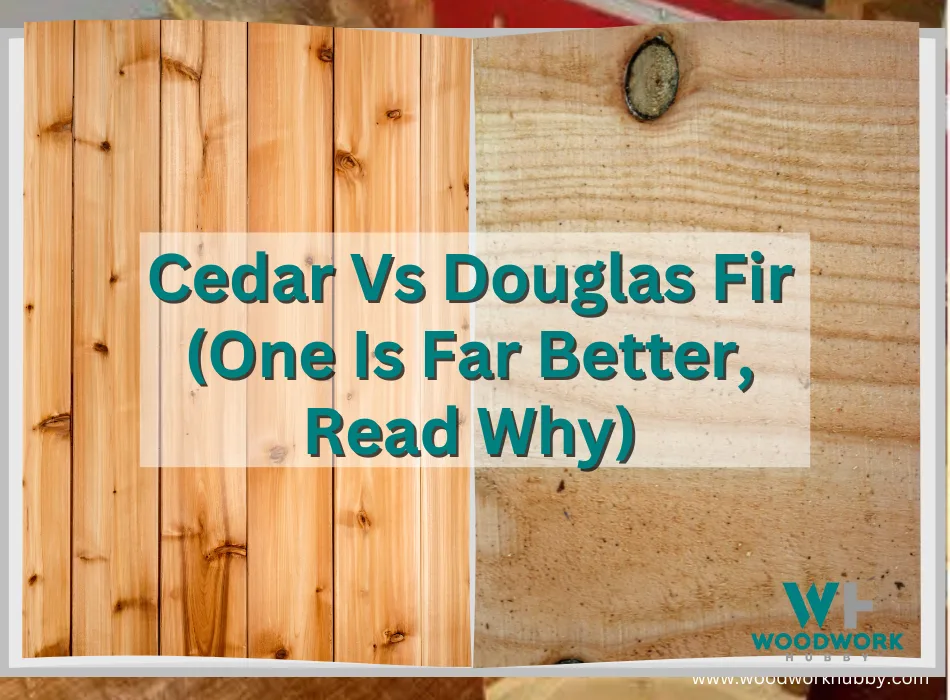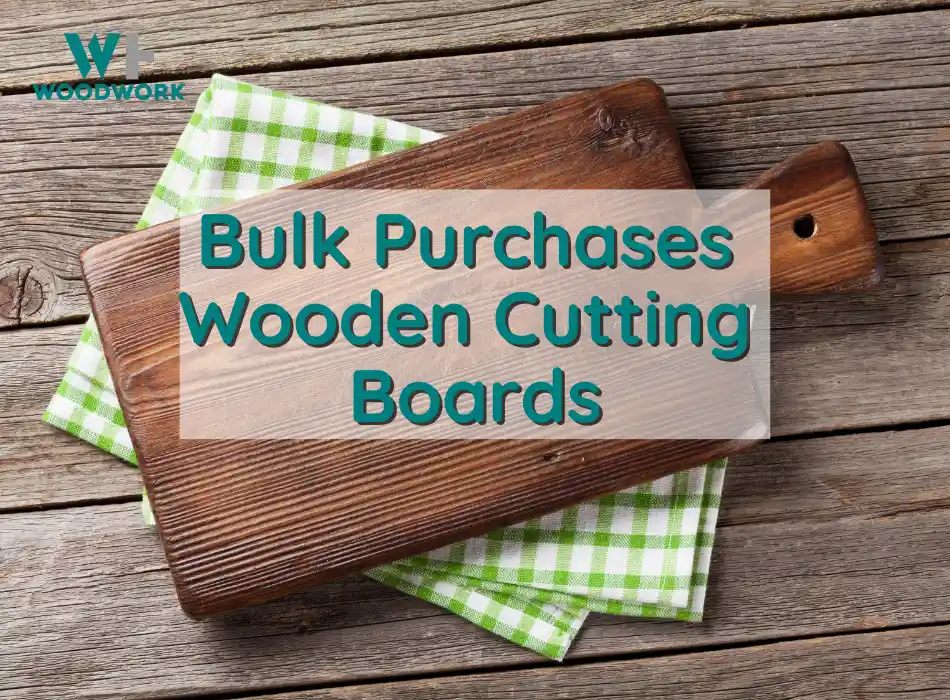I was out lumber shopping, and things came down to a single choice. I could either get a stack of Fir in my truck or the same volume of Cedar.
The choice was pretty obvious to me, but a few of my friends were surprised. It actually amazes me that people still don’t see that one of these woods is the clear winner, and it isn’t what most people think.
Douglas fir is far better than Cedar because it is stronger, cheaper, and more dimensionally stable. It is also weather-resistant and insect-resistant to an extent. You can use Fir in any use case in which Cedar is the recommended material, except as insect repellent.
In this article, you will find out how Cedar and Douglas Fir compare in different aspects and why Fir can be the better choice in most cases.
You will also discover the objective pros and cons of each wood type alongside its ideal uses. By the end of this post, you’ll know which wood you should be getting.
A video showing the characteristics of cedar wood with expert advice if you are planning to buy cedar furniture.
Cedar: A Brief Overview
Cedar is a softwood that is considered among low-end hardwoods in some instances. The main feature of cedar lumber is that it does not get attacked by insects. Cedar wood is used in interior middle-weight furniture applications and for exterior posting and fencing options.
It is the most popular in shingles and sidings as its lack of weight-bearing potential doesn’t hinder it in these applications.

Cedar often comes up as an option whenever weather and insects are the main areas of concern. In a similar capacity, Douglas fir is often brought up. But before I go over the specifics of Fir, let’s look at the pros and cons of Cedar in isolation.
| Pros of Cedar | Cons of Cedar |
|---|---|
| Cedar doesn’t warp easily due to changes in moisture | It is flammable |
| It resists rot and insect attacks | It can be more expensive than other types of wood |
| It doesn’t get worn out by weather conditions or changes | It cannot bear a lot of weight |
| It can be used without staining | It is high maintenance in some use cases |
By now, it is pretty clear that Cedar has some serious drawbacks that keep it from being a universally usable wood type. At the same time, it is also very useful in some cases.
While looking into these differences, I have found much other useful information about cedar. I wrote these articles which I’m sure will be of interest to you:
When you compare Cedar with any wood, you must see which one covers the usability of the other without having the same liabilities. Let’s look at Douglas fir and its pros and cons in isolation and then compare both.
Douglas Fir: A Brief Overview
Douglas Fir is a beautiful-looking softwood that is often used for flooring, veneer, and framing work. And when it comes to framing in particular, it is often compared to Cedar. Fir is popular because of its strength despite it being a softwood.
It is often rolled into weight-bearing applications as well because of its hardness and strength. It is also insect-resistant to an extent, which again inspires comparisons with Cedar. But before we compare Cedar and Fir, we must look at the pros and cons of this wood in the absence of any other wood type.
| Pros of Douglas Fir | Cons of Douglas Fir |
|---|---|
| It has a high strength-to-weight ratio | It is more expensive than softwoods |
| It is flexible and has high dimensional stability | It can get scratches and dents |
| It is somewhat insect-resistant | Its insect resistance has limits |
| It doesn’t absorb moisture as much as other woods | It can be a little hard to find |
| It is somewhat insect resistant | It isn’t as durable as hardwoods |
A brief comparison of the two shows that durability and relative ease of scratching are two liabilities that neither wood type completely cancels out. But to what extent is each liability present in these woods? Let’s start by examining durability, then proceed to denting.
Will Douglas Fir Last As Long As Cedar?
Douglas fir will not last as long as Cedar if it is outdoors and exposed to the elements. But if both types of lumber are indoors and under significant weight, Douglas can outlast Cedar.
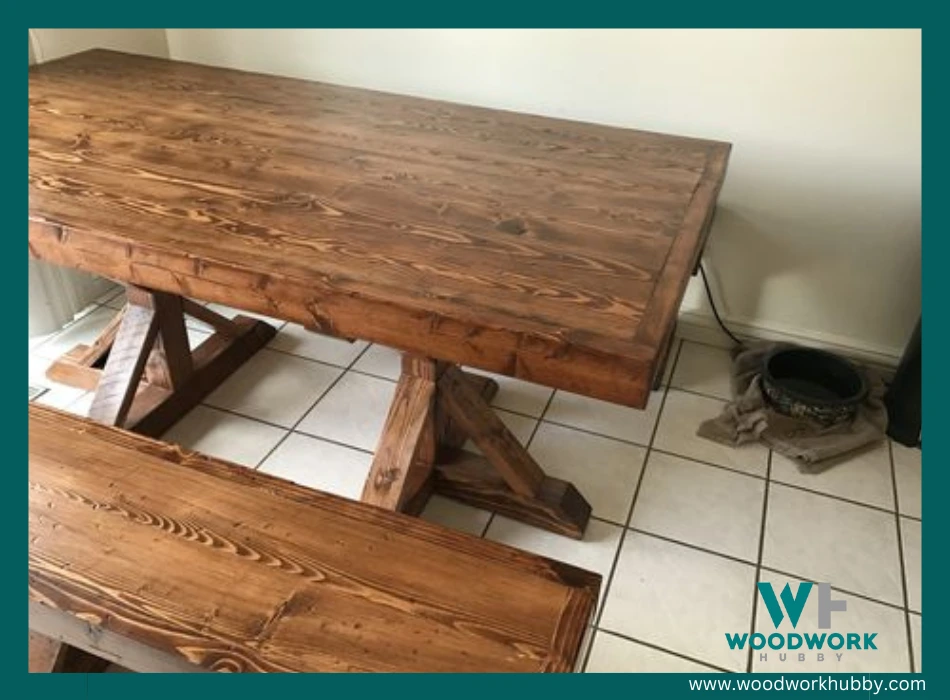
Ultimately, wood’s longevity is decided along two dimensions: its ability to resist the environment and its physical durability. Douglas doesn’t have as much weather or insect resistance as Cedar.
However, Cedar isn’t as strong as Douglas Fir. And this also affects the overall scratch resistance (which is also a liability for both of these woods)
Which Is Stronger, Fir Or Cedar?
Fir is stronger than Cedar and hence harder to scratch or dent in comparison. It is also more structurally stable and suitable for exterior use cases. Cedar, despite resisting bugs, isn’t all that great in load-bearing applications.
Load-bearing applications can entail indoor and outdoor use. Depending on how much of a risk insect infestation is in an outdoor environment in your area, you can choose between Fir and Cedar, provided that the weight placed on the lumber isn’t too much.
If the project needs to be stronger, then you have to choose Douglas fir and use insect-proofing and weatherproofing measures. Because strong wood can be made weatherproof, but weak weatherproof wood cannot be made stronger.
A video showing information about Fir lumber.
Is Douglas Fir Good For Outdoor Use?
Douglas fir, despite being less insect-resistant than Cedar, is pretty good for outdoor use even without additional insect-resistance and weather-resistance measures.
Fir has been in use for porches and other load-bearing outdoor uses for over a hundred years, while Cedar is rarely seen in outdoor weight-bearing applications.
Cedar Vs. Douglas Fir
Now that you know the individual pros and cons, and the common liabilities of both kinds of wood alongside how much each liability is present in each of these wood types, we have the foundation to compare both wood types.
Please remember that this comparison is based on facts like the Janka rating of these woods and price quotes and is supplemented by my experience as well. Here is the comparative table of these wood types.
| Cedar | Douglas Fir | |
|---|---|---|
| Insect-resistance | High | Low |
| Weather-resistance | Medium-High | Medium |
| Load-bearing Capacity | Low | Medium |
| Scratch-resistance | Low | Medium |
| Price | $6.99 / Board Foot | $ 4.50 / Board Foot |
| Ease of buying | Easier to get | Harder to find |
| Best use case | Fence | Window Frame |
| Worst use case | Construction Beam | Signpost |
| Interchangeable use case | Folding furniture for picnics | Outdoor folding furniture |
| Biggest pro | Insect-resistant | Dimensionally Stable |
| Biggest con | Not as load-bearing | Not as insect-resistant |
The table above compares the two wood types briefly. Let’s take a closer look at how Cedar and Fir vary in different aspects.
Cedar Vs. Douglas Fir Strength
Douglas Fir is stronger than Cedar by a slight yet noticeable margin. Both wood types can be used for short-term and medium-term furniture like garden chairs and picnic tables. However, Fir projects are likely to last longer.
Strength matters only in use cases where the project has to bear weight. In siding and shingles, the aesthetics matter far more. And in that case, Cedar seems to outperform Douglas fir. That, however, is a subjective judgment.
For some people, the aesthetics might not even matter when choosing the siding. If you find the appearance of Cedar and Fir comparably pleasant, you might be a price buyer. It is amazing how much one can start liking something that comes at a lower price.
Cedar Vs. Douglas Fir Price
Douglas fir is usually 35% to 50% cheaper than Cedar but is harder to find. In lumberyards, where it is abundant, it is cheaper than Cedar but more expensive than most softwoods.
The availability, however, isn’t a trivial drawback that can be ignored. I have been buying Fir for years now, and every time I have to get it in bulk just because it just isn’t there three out of ten times I visit the lumber yard.
I have talked to enough woodworkers to know that this isn’t an issue with just one lumberyard. Fir is hard to get in its raw form.
There are many pieces of fir furniture available online as there are of Cedar. These are often factory-made pieces and can be used for picnics and in gardens. But the qualities of the wood translate to the finished products as well.
Basically, the wood that lasts longer produces furniture that lasts longer.
Cedar Vs. Douglas Fir Furniture
Furniture made out of Douglas will last longer outdoors, while furniture made from Cedar will last longer in an environment where there are plenty of insects.
This is the one context where Fir is left behind. But it is worth looking at. What does it mean for an environment to be vulnerable to insect attacks? Usually, that’s an exterior environment that is moist and rich in organic matter. Sounds like a description of a garden, doesn’t it?
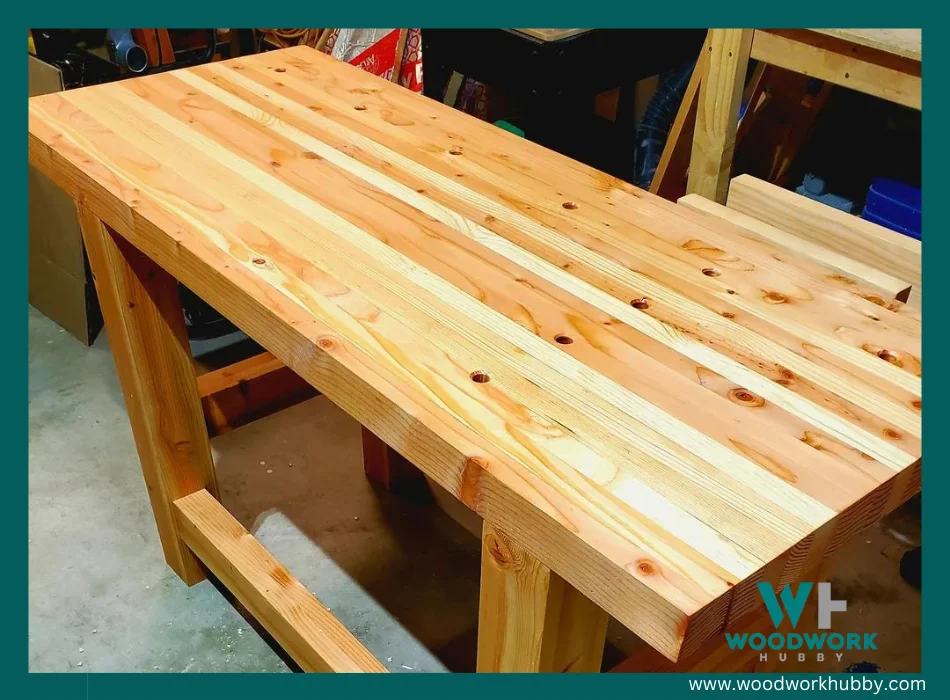
Douglas fir isn’t great for direct contact with soil. That means signposts, tables placed on grass, and garden fences should all be made out of Cedar.
In these uses, where insects have a direct point of contact with wood, the only area of concern is a garden table. A garden table, unlike a fence or a signpost, has to bear a certain amount of weight.
Fir furniture can bear more weight than cedar furniture and is hence more forgiving of rougher treatment. However, when a Fir table is sitting on the grass, insects can ultimately attack it.
The infestation isn’t as quick as with other types of wood, but it eventually happens. With Cedar, it is very rare to see such a thing.
Even when Cedar loses its smell, lightly sanding the top layer reveals the inner layer, which gives out the aroma that repels insects. My ultimate verdict is to use a cedar table if it can handle the weight of what you intend to put on the table.
This is because of ground-contact uses, not just exterior uses. Fir isn’t aversive to exterior use. It is just not as good at applications where it touches the soil constantly. The exterior comparison is more nuanced.
Cedar Vs. Douglas Fir Exterior
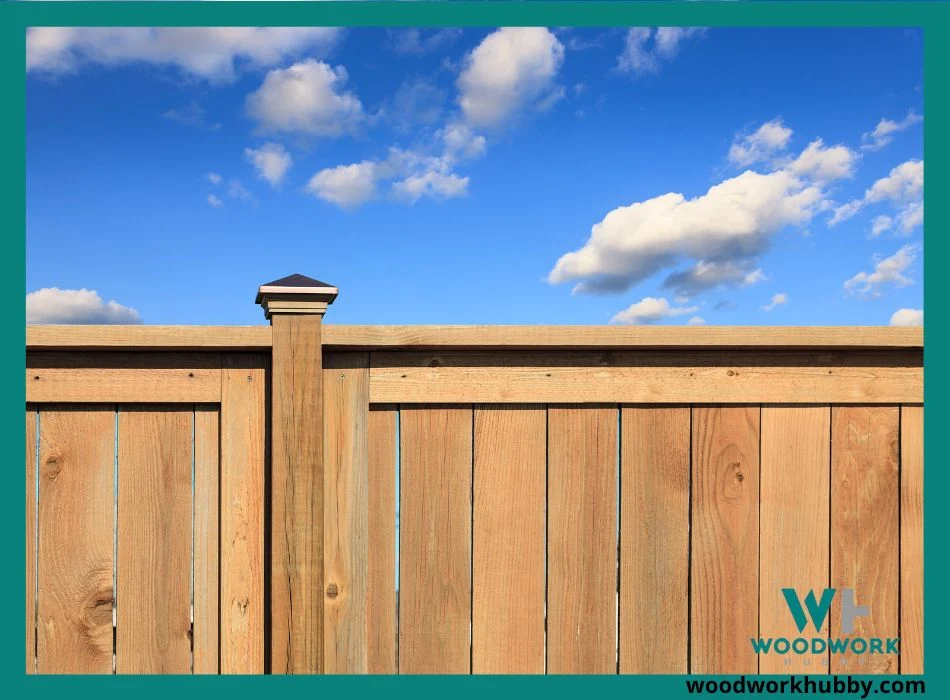
Cedar is better for exterior uses where it is not bearing weight. These uses include shingles and siding. Douglas fir can be used in these instances as well, but it outperforms Cedar in weight-bearing uses like porch construction and deck furniture.
As mentioned earlier, things change when said furniture has to touch grass for extended periods, especially in wet seasons. Then I would choose Cedar. But you can also use a cedar oil like Cedarcide Original to fortify Douglas fir furniture for outdoor use.
Cedarcide Original
Which One Should I Get?
Douglas fir is far better than Cedar for most projects except for exterior siding, where Cedar is a far more aesthetic choice. But that’s just my subjective opinion. More objectively, you should look for what you want out of the wood.
Get Cedar If You Want Insect-Resistance
If you need garden furniture or a frame for your main door that touches the ground from where the insect can target it, you should probably use Cedar instead of Douglas fir.
I would personally just use cedar oil or shavings to repel insects and use Fir for the project itself.
Get Fir For Its Price
Fir is objectively cheaper than Cedar, and with the condition of the economy, it is hard to justify buying a less durable yet more expensive lumber. Whether you’re a bargain buyer or not, you should be getting Fir for its price.
Get Cedar If You’re In A Hurry
While the price difference between these woods is lucrative, it is pretty inconvenient to look for Fir when it isn’t available. If you’re in a rush, you should make your peace with finding only Cedar at the lumber yard.
Get Fir For Its Longevity
Douglas fir is more durable and lasts longer. And who wants their projects not to last long? That’s why I consider Fir, the default winner in this comparison.
Final Thoughts
Douglas fir can do almost everything Cedar can do, especially if you fortify it with cedar oil. Cedar oil can give Fir the same insect resistance as Cedar, but nothing can make Cedar as strong as Douglas fir. That’s why Fir is far better.

